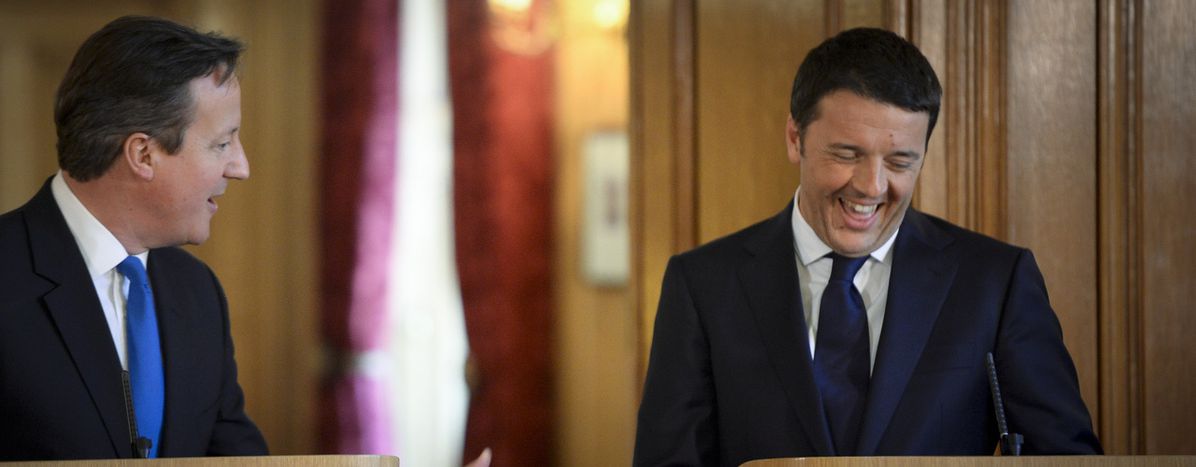
What does Matteo Renzi's resignation mean for the EU?
Published on
Translation by:
euro topicsItalian Prime Minister Matteo Renzi announced his resignation late on Sunday night, after nearly 60% of voters turned down his proposed changes to the country's constitution. Some say that this is business as usual for a country as politically turbulent as Italy, but some fear this could have serious consequences for the rest of Europe.
Renzi's risky referendum game - Le Point, France
Italy's prime minister ran an enormous risk in uncertain times, Le Point comments:
"Italy combines all the factors that have allowed populism to flourish: economic stagnation, rising poverty, a middle class in crisis, the loss of a sense of identity, a growing threat to security. It has now fallen prey to populist forces, from Beppe Grillo's Movimento Cinque Stelle to the Lega Nord. This spectre of populism haunted the referendum on 4 December. That shows how big a risk Renzi ran in turning the referendum into a vote on his programme, and in announcing that he would resign if it failed. He has made himself the scapegoat for Italy's widespread malaise." (05/12/2016)
A fatal blow for the EU? - Jornal de Negócios, Portugal
If Renzi's resignation triggers fresh elections, Italian author Mario Margiocco fears the worst:
"The Eurosceptic Five Star Movement and the right-wing populist Northern League are not allies, but both fuel anti-system sentiment and call for 'national solutions' to Italy's problems - starting with a return to the lira. If new elections are called, the two may join forces and support a new government that could hold a referendum on Italy staying in the EU. And Italy leaving the EU could be a fatal blow for the EU project... As in the UK and the US, 'change' is the magic word in Italy right now. But no one seriously wants to address the challenge of change... 'Don't just change the constitution, change everything!' the No campaign demanded. But wanting to change everything is ultimately just a way to keep everything the same." (05/12/2016)
A pageant of panic-mongering - Jutarnji List, Croatia
The constant warnings of impending doom are exaggerated, Jutarnji List comments:
"The Italian referendum was considered dangerous because it could bring the Italian government down. Such nonsense! As if this would be the first Italian government that had ever toppled. On the contrary, Renzi now belongs on the Italian system's long list of 'stable instability'. Yes, but if Renzi goes, the anti-European Beppe Grillo will take his place! they say. Oh really? And if things were different he wouldn't? Grillo would have come to power at the latest in the 2018 elections anyway unless something changes radically. So the whole circus is a creation of the panic-mongerers who - after the Greeks didn't leave the Eurozone and the EU didn't collapse after Brexit - rushed to put together another panic scenario before they move on to scaring us with Trump's move into the White House and Angela Merkel's political fate." (05/12/2016)
The people long for security - Il Fatto Quotidiano, Italy
The left-wing daily Il Fatto Quotidiano was one of the main opponents of the constitutional reform. Stefano Feltri, deputy director of the paper, sees the rejection of the reform as a triumph of the people, not of anti-politics:
"If we add up the votes of the two anti-system parties, Movimento Cinque Stelle and Lega Nord, we end up with just over 40%. The percentage of Italians who said No to the constitutional reform was, however, much higher. That shows that the rejection of the reform (or the rejection of Renzi) doesn't overlap with the extreme positions... In a world that is growing ever darker and more uncertain the Italians have decided to seek refuge behind one of the few barriers that are still intact. Barriers that were set up to defend values that are now being called into question. Barriers that were built into the constitution, by scholars, by the popular religion that guarantees the cohesion of the state and society. Another reason for this defeat is that Renzi sacrificed the country's agenda for his own agenda." (05/12/2016)
---
30 Countries, 300 Media Outlets, one press review. euro|topics presents the issues affecting Europe and reflects the continent's diverse opinions, ideas and moods.
Translated from Referendum: Bringt Renzis Rücktritt die EU ins Wanken?



